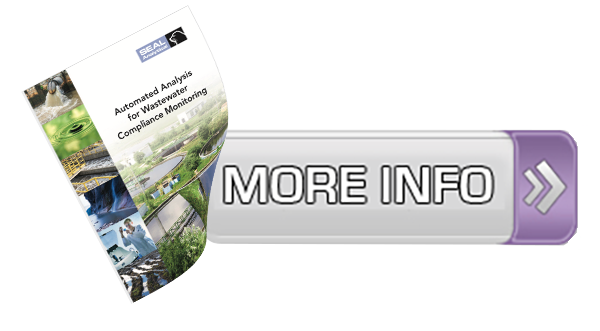Often a tedious and repetitive process, Biochemical (also known as Biological) Oxygen Demand (BOD) automation is a necessity in modern environmental labs. SEAL Analytical offers cost-effective, regulation-compliant, custom solutions for labs with various throughputs and automation requirements.

The MiniLab Robotics BOD Series ranges from compact models with 12 bottle capacity to larger custom models handling thousands of bottles per day. The robotic arms can be customized to handle multiple steps in the BOD procedure. With a sturdy frame, encoded motors, and intelligent programming, the MiniLab will maintain alignment and accurately carryout the specified automation solution. The SEAL BOD software is fully customizable. This ensures your laboratory needs and regional regulations can be met.
SEAL has many other ptions for automating your wastewater testing lab. The multi- parameter MiniLab robotic system can be configured to prepare and automate a range of analytical parameters – all in one system. Ideal for water and wastewater applications, systems range from a simple single parameter unit, such as pH, to a multi probe unit designed to measure many parameters. These can include sample preparation features such as sample splitting and filtration. The MiniLab is compatible with many probe types and titration systems.
Suitable for EPA 405.1, ISO 5815-1, Standard Methods 5210 B, DIN 38 409-H51 etc.
Links